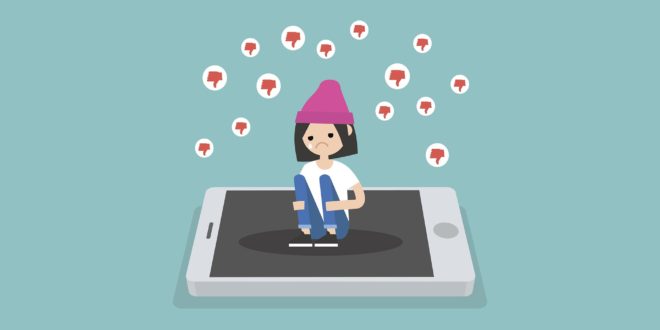New research says that those who spend too much time on social media are apt to be depressed later on. Of course, the issue could be seen from another angle, depressed people may spend more time online, shying away from face-to-face interactions. Dr. Brian Primack, a professor of public health at the University of Arkansas, USA, and her team decided to gain more clarity to this chicken or egg question through a study. Their report, published on December 10, 2020, in the American Journal of Preventive Medicine, concluded that extensive use of social media did increase the chances of having depression in young people later on. The study was done on 1,000 people in the 18 to 30 year age group. A standard questionnaire was used to determine that none of them had depression, and each reported the time they usually spent online. Factors like education, income, race, and state of employment were also taken into account, and the participants were asked about any childhood traumas that could be risk factors for depression, such as physical abuse and emotional neglect. Assessments for depression done six months down the line found that 10% of the participants had symptoms indicating depression. The risk of depression rose in line with the time spent online, with those spending at least five hours per day having a three times higher risk for depression than those spending two hours or less per day. Likewise, those spending three and-a-half to five hours per day had double the risk. To understand whether depressed people were likely to use more of social media than others, the team did a study on another 299 participants who suffered from depression at the outset. They found that these participants did not show much of an increase in social media usage over time. Nathaniel Counts, the senior vice president of behavioral health innovation for Mental Health America, is of the opinion depression is a complicated subject, and it’s difficult to find out the role of a single factor. He cites as an example a young person trying to find escape from a difficult family problem who could start spending more time on social media. This would likely precede depression, but not be the cause. And, because individuals vary, different people could have different reasons for using social media. Someone engaging positively with new friends is a very different matter from someone who just passively scrolls through his news feed and compares himself to others, making himself feel inadequate in the process. Furthermore, people who commonly feel marginalized may spend more time on social media to connect with online supportive communities.
Easing Depression
In addition to reducing time spent online, here are some other ways to ease depression:
Adopt a pet: At times when you feel down and out, playing with your pet and taking care of him is excellent therapy. This is because doing so takes your mind off your own problems, and you get to focus on something outside of yourself.
Choose foods to boost your mood: Some studies indicate that low levels of omega-3 fatty acids and vitamin B12 may be linked to depression, because they could play a role with mood-affecting brain chemicals. So, eat more of fatty fish like salmon, tuna, and mackerel, which are rich in omega-3, as are nuts, soybeans, flaxseed, and dark green vegetables. Seafood in general has lots of vitamin B12.
Carbs for a good pick-me up: A brain chemical called serotonin boosts your sense of well-being, and carbohydrates enhance its level in the brain. So, eat more carbs.
Reduce caffeine intake: Too much caffeine may result in jangled nerves, jitteriness, or anxiety. There is no clear link between caffeine and depression, but cutting down could help you sleep better and rejuvenate your mental well-being.
Work out: Exercise makes you feel better physically, gives you restful sleep, and boosts your mood. Choose a form of exercise that you like and get some company when exercising, since both will motivate you to go the extra mile.
Sunbathe: There’s something called seasonal affective disorder (SAD), would you believe it? And, winter is usually when it strikes some people, making them…yes, sad! Beside other therapy, plenty of sunlight will make you less sad.
Be creative: Immersing yourself in some creative pursuit will get your mind off your real and perceived problems and help to relax the mind.
Participate in community activities: Time spent on community work and on causes dear to your heart will give new meaning to your life and make you feel better.
Hold on to family and friends: It feels good to have someone listen to you when you are having the blues, and who better than family and friends to do so?
Sleep better: Being depressed means that your sleep is also often disturbed, resulting in more of the same down and-out feeling. So, acquire a disciplined sleeping habit. You could start by going to bed around the same time every night, and learn some relaxing techniques.
Reference: American Journal of Preventive Medicine, Dec. 10, 2020
 Medicosnext
Medicosnext




